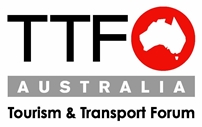NSW commuters will be in a technology fast lane that will move people faster and better before any other State, according to a new transport study conducted by Tourism &Transport Forum (TTF) and L.E.K.Consulting.
Speaking at the release of the “Are We There Yet?” Report, TTF Chief Executive, Margy Osmond said, “The cutting edge of public transport in great transport cities like Singapore is all about autonomous, high tech, no holds barred innovation, combined with community friendly transport options that work for individuals.
“This Report is designed to look at who is ahead of the pack in catering to our travelers over the next decade.
“Our State governments have to provide really good reliable public transport options right now, but the future is rushing at us. It is important to measure the capacity of governments to meet that ‘hyper smart’ challenge for Aussies and tourists,” Osmond said.
Speaking about the report Simon Barrett, Senior Partner of L.E.K. Consulting Australia said “the Report shows that as a nation we are innovating, we are looking to the future and how to leverage new ‘smart’ options.
“The research shows us each State has developed unique strengths, but it also highlights where there is more work to be done, if we are going to meet the mobility challenges and opportunities of the next decade.
“Many states have already made significant investments in modernising the way people move and preparing for the next wave of change. What we need to understand is – are we moving quickly enough and what will be most critical for the users of these future transport systems.
“We wanted to objectively measure Australian State governments’ performance on key technologies and trends i.e. shared mobility, autonomous vehicles, electric vehicles, mobility as a service, on-demand public transport, driverless rail, digital driver’s license and payment innovation.
All the States were compared to Singapore, which is an acknowledged global leader in new mobility,” Barrett said
Ms Osmond said “Transport is moving into a space where driverless trains, all kinds of ride sharing, high-tech ticketing systems, drones and even “George Jetson’s” flying car are becoming a reality and consumers want it.”
And the winner is……NSW has an impressive lead on the rest of the States and is ahead of global trends on nearly every criteria. It also marginally out-scored Singapore.
South Australia which has already been recognised as a global leader of automated vehicles and digital drivers’ licenses, came in second.
The ACT which has developed an integrated future transport strategy embracing shared vehicles, electric vehicles and payment innovation and was third. Queensland followed at 4th position with a strong record of investing heavily in shared mobility and future transport technologies like electric vehicles.
Victoria was fifth being the test ground for shared mobility companies and with a long history of smart road technologies, followed by WA in 6th place. Tasmania and the NT are making progress but not yet ‘at scale’.
“Every commuter wants public transport to be easy and on time right now. A recent TTF Nielsen Survey revealed that 76% of Aussies are satisfied and happy with their States’ public transport. This level of day to day satisfaction provides a really solid foundation for future high tech and more innovative travel planning,” Osmond said.
“With an eye to a more ‘sci-fi’ commute, more than two-thirds of Aussies surveyed also imagined a future where people and goods are routinely transported by flying autonomous drones.
“Transport goes a long way to making our increasingly busy lives just a bit more manageable. Great public transport that meets visitor expectations is going to be more and more important for our tourism industry also.
“Making sure our governments are up to speed on what commuters and visitors will need on the wild technology ride of the next decade, is vital. “Osmond said.
